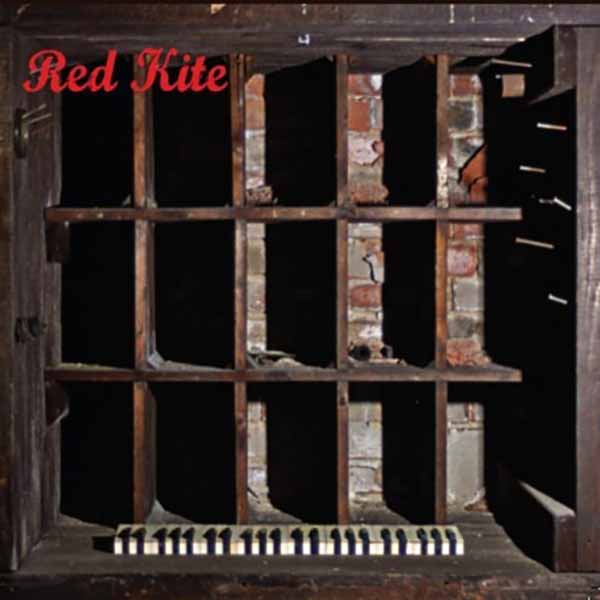
by Ian Mann
February 24, 2012
/ ALBUM
Pleasingly melodic but also deeply rhythmic, easily digestible yet subtly challenging, and just full of good ideas allied to exemplary playing.
Red Kite
“Red Kite”
(F-ire Presents F-IRECD41)
Pianist and composer Esben Tjalve is just one of a number of highly talented Danish jazz musicians making their name on the London jazz scene. This eponymous début recording by Tjalve’s sextet Red Kite appears on the F-ire presents imprint and features many of the capital’s finest young musicians. Joining Tjalve at the piano are Fringe Magnetic’s Rory Simmons on trumpet, Christoffer Appel on alto and baritone saxes, Hannes Riepler, recently heard to such good effect on trumpeter Andre Canniere’s début, on guitar plus the Kairos 4tet rhythm section of fellow Dane Jasper Hoiby on double bass and Jon Scott at the drums. It’s an impressive line up by any standards and the all star line up excels on Tjalve’s highly descriptive contemporary jazz compositions. The pieces are pleasingly melodic but also deeply rhythmic, easily digestible yet subtly challenging and just full of good ideas allied to exemplary playing.
The sextet format (sometimes reduced to quintet as Riepler only plays on six of the album’s nine tracks) allows Tjalve plenty of opportunities to create rich textures and adventurous harmonies. Opener “The Omen” builds from Tjalve’s opening piano arpeggios to encompass fan faring horns, sometimes in counterpoint, all driven by Scott’s hypnotic hip hop inspired drum grooves. It’s a spirited call to arms
“Modes” is more descriptive with Simmons and Appel again linking up well as Hoiby’s bass and Scott’s colourful drumming, often with bare hands, subtly propel the piece. Here Tjalve allows himself the first solo of the set, flowing and lyrical at the piano. He’s followed by the thoughtful Riepler on guitar, but impressive as the solos are it’s the ensemble sound that is key.
Hoiby, whose presence on any disc is pretty much a guarantee of quality, is given the chance to show off his magnificently rounded tone and admirable dexterity on the stately “Odessa”, initially a trio performance featuring Tjalve’s rich chording and Scott’s delicately brushed drums. The horns enter late, adding a faintly melancholic air to this richly descriptive composition.
“Fungal” is a muscular piece of post bop that sounds as if it could have been recorded in New York.
There’s a tightness and urgency about this densely knit music from which Simmons’ trumpet emerges like a clarion with a bravura solo above the rasp of Appel’s baritone and the bustle of a very active rhythm section. Appel also gets some space in the limelight as the piece hurtles towards it’s conclusion.
“Antarctica” is a kind of abstract ballad featuring the appropriately chilly ring of Simmons’ trumpet alongside Riepler’s guitar atmospherics and Appel’s coolly incisive alto.
At a little over eight minutes “Perm” is the lengthiest piece on the album and build from a duo introduction for saxophone and piano innards to embrace engagingly odd meter grooves, punchy horns and absorbing solos from Tjalve and Simmons. Despite the obvious virtuosity exhibited by the pair it’s still the overall band sound that impresses most with Appel’s baritone weaving in and out of the mix and with Hoiby and Scott displaying their usual mix of power and flexibility.
“Texture” is perhaps a good description for the album as a whole and this relatively brief item (just under four minutes) encompasses many of the album’s virtues with Tjalve’s piano underpinning mellifluous horns and with Hoiby again soloing effectively.
“Variations” is more forceful and again exhibits an urgent, urban feel with Tjalve eventually striking out to take the first solo, a leaping joyous affair that emphasises the full range of his abilities. Hoiby shines with another dexterous, assertive bass solo and there’s also a feature for the excellent Scott as the horns fulfil a largely textural role.
The album concludes with another take on “The Omen” theme. “The Omen (Outro)” is like a mirror image of the album opener with the horns stating the theme before falling way. Bass and drums also subsequently subside to leave Tjalve alone at the piano.
This music was recorded back in 2008 but the wait has been well worth it. Tjalve’s is a playing and compositional talent that deserves to be heard. For all the undoubted skills of the individuals involved it is the ensemble sound that is paramount. Tjalve’s writing is intelligent and consistently interesting with rich colours and textures but there’s an engaging spikiness about the music too that seems to draw its inspiration from contemporary American jazz developments. Although Tjalve delivers a number of engaging solos he doesn’t feature himself on every number and his selflessness pays dividends through the quality of the music as a whole. Dave Moore’s pinpoint mix also brings out the best in the musicians involved.
The F-ire Collective may have lost something of the high profile it enjoyed in the mid noughties but releases on the label still present intelligent, good quality music, primarily by young musicians. Recent recordings have seen the Collective retaining its high standards but even in this context the “Red Kite” album deserves to be considered one of the label’s best of recent years.
The all star nature of the group ensures that it’s participants are invariably busy with other projects and opportunities to hear the group live are unfortunately likely to be limited. This is a pity but adventurous festival organisers could do worse than taking a look at this adventurous quintet/sextet.